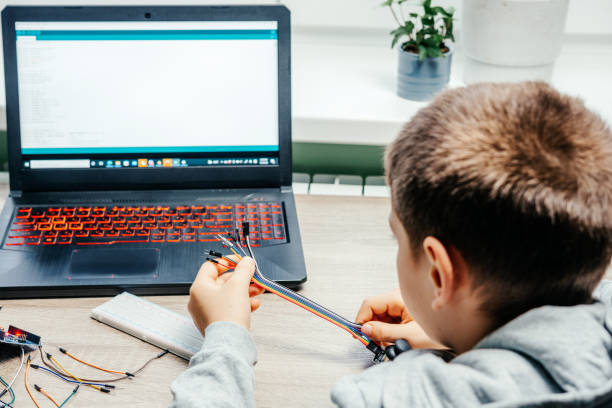Introduction:
Best Age for Kids to Start Learning to Code has become a fundamental skill in today’s digital age. Highlight the importance of coding in developing critical thinking, problem-solving skills, and creativity. Emphasize how starting at the right age can have a lasting impact.
The Basics of Learning to Code: What Does It Mean for Kids?

Introduce coding in simple terms for parents who may not be familiar. Describe it as a way of giving instructions to computers and the basics of how kids engage with coding through games, puzzles, and visual coding platforms.
Ideal Age Ranges for Starting Coding: A Breakdown
- Ages 3-5: Early Exposure Through Games and Logic Skills
- Describe age-appropriate activities such as interactive apps and educational games that introduce kids to logical thinking without traditional coding.
- Ages 5-7: Introduction to Basic Coding Concepts
- Discuss visual coding platforms like ScratchJr, which uses block-based coding that doesn’t require reading skills, allowing kids to learn sequencing and basic logic.
- Ages 8-10: Building Foundational Coding Skills
- At this age, kids can begin using more advanced block-based coding and start exploring simple text-based programming languages. Mention platforms such as Scratch and Code.org.
- Ages 11-13: Advancing with Text-Based Programming
- Talk about this age as a prime time to move into languages like Python and JavaScript, helping kids transition from block-based coding to real programming.
Factors to Consider When Deciding the Right Age for Your Child
Explain factors that might influence the ideal starting age, including:
- Interest in Technology: Kids who show curiosity about tech may enjoy coding at an earlier age.
- Learning Style: Visual learners might engage sooner with block-based platforms.
- Parent and Teacher Support: Availability of guidance can help younger kids start effectively.
Benefits of Learning to Code at a Young Age
List benefits for kids who start coding early, such as:
- Enhanced problem-solving abilities
- Better resilience and patience
- Greater creativity and logical thinking
- Improved math and reasoning skills
How to Encourage a Love for Coding in Young Kids
Provide tips for parents on how to create an engaging environment:
- Incorporate Play and Gamification: Choose platforms that turn coding into a game.
- Celebrate Small Wins: Praise kids for completing coding challenges.
- Explore Coding Outside of Screens: Mention coding board games and activities that teach logic without a computer.
Coding Tools and Platforms for Each Age Group
Give an overview of popular platforms and apps suitable for each age range, including:
- ScratchJr for ages 5-7
- Scratch and Code.org for ages 8-10
- Tynker and Khan Academy for ages 11+
Potential Challenges of Early Coding and How to Overcome Them

Discuss challenges such as screen time concerns, maintaining interest, and balancing coding with other activities. Offer solutions, such as setting time limits, choosing age-appropriate content, and mixing coding with hands-on activities.
Success Stories: How Coding at a Young Age Has Helped Kids
Share brief stories of young coders who achieved success, showcasing how starting early benefited them academically and creatively. These can help motivate parents to consider coding for their kids.
Conclusion:
Summarize the key points, encouraging parents to let their children explore coding at a pace that matches their interest and development. Reinforce that Mini Coders offers a supportive platform designed to make coding accessible and fun for young learners.
